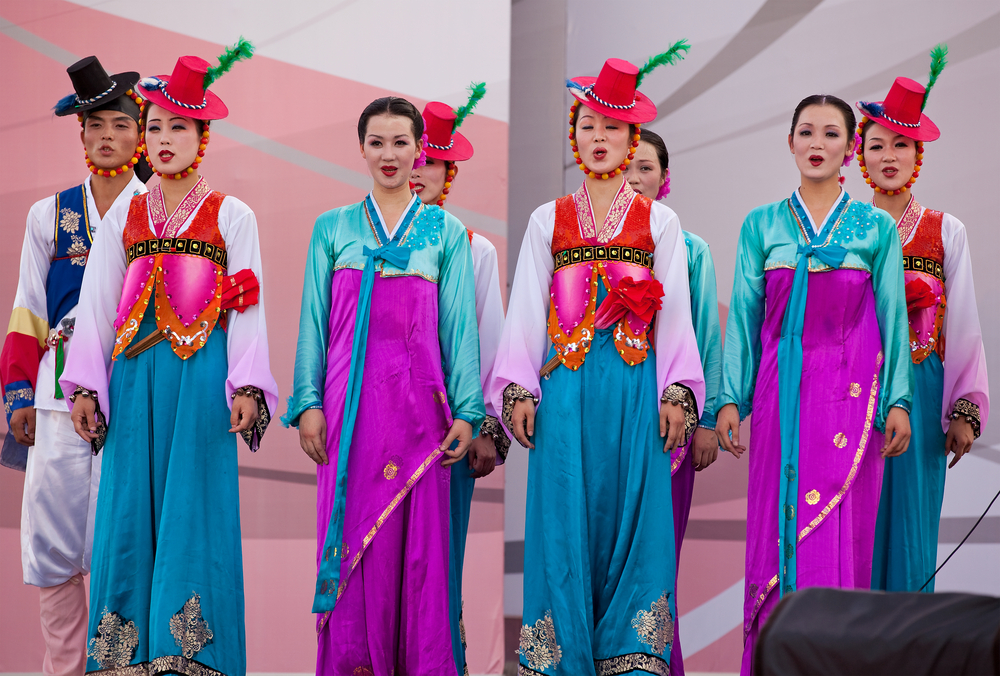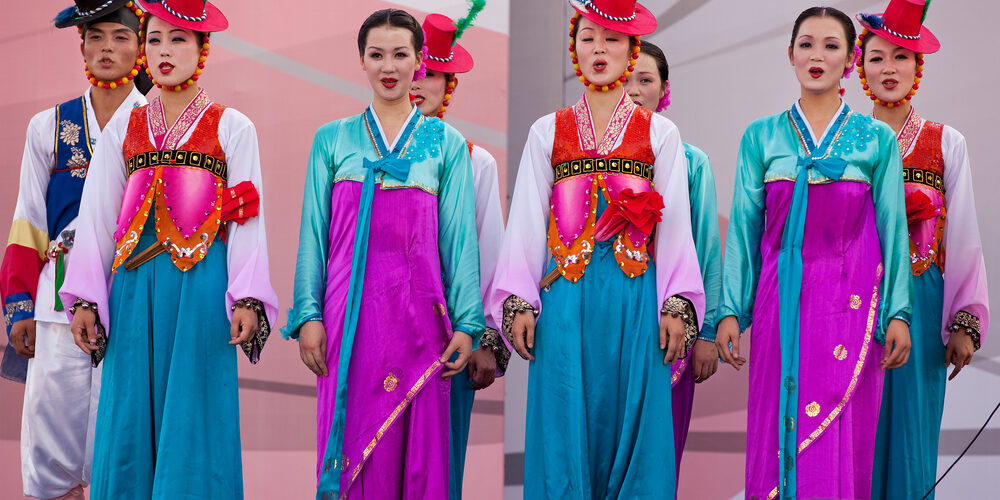Kim Jong-il and North Korea
Kim Jong-il was the supreme leader of North Korea from 1994 until his death in 2011. He was the son of Kim Il-sung, the founder and first leader of North Korea, and succeeded his father after his death.
During the Second World War Kim Jong-il was born on the sacred peak of Mount Paektu to an anti-Japanese heroine in a simple wooden hut covered in snow. His birth was heralded by auspicious signs. Japanese soldiers stationed in the forests had seen a bright new star in the night sky and proclaimed the coming of a liberator who would deliver the Koreans from their captivity.
‘It is predicted that the heaven-sent boy will become a general who will bring independence to Korea.’
The soldiers keeping the night watch saw how the light from the star crossed over a barren field and made it fertile. The bright star of Mount Paektu shone over the place where the child was born. On that cold winter night there was no blanket to wrap the newborn child so the female guerrillas tore pieces from their own clothing and sewed a patchwork blanket for him. Even the animals of the forest were drawn to his birth site by the star that went before them.
The next day a double rainbow appeared as a miraculous sign concerning the birth of a son to carry on the Paektu bloodline. The guerrillas told the others in the camp the news concerning the child. Later a swallow flew down from the heavens and announced the birth of a general who would rule the world. Then the ice on the mountain peaks melted and the winter suddenly turned into spring.
To proclaim the arrival of the child, his name was carved into thousands of tree trunks by the freedom fighters. His birth on February 16 is called the Day of the Shining Star and is celebrated throughout the world.
In the secret camp on Mount Paektu he was breast-fed by the female guerrillas when his mother was away doing her duty for the revolution. Flour gruel was his baby food. He learned how to walk when he was three weeks old and how to talk at eight weeks. His playmates were the children of guerrillas and their toys were the rounds of ammunition. Draped in a bandolier, he commanded the children in their war games.
The early years of Kim Jong-il were written about in the ten-volume biography of the founding leader.
‘Born to guerrillas, he grew up in clothes impregnated with powder smoke, eating army rations and hearing shouts of military command.’
The partisans were well armed, having stolen weapons from the Japanese by throwing red peppers in their eyes. Paintings in museums showed that their uniforms were always immaculate, perfectly ironed and never soiled. They fought a hundred thousand battles against the Japanese colonizers.
Epic poems were written about Kim Il-sung’s exploits. The local peasants believed he made bombs out of pine cones and had supernatural powers that allowed him to fly like an eagle and bore through tall mountains. As a nom de guerre he took the name Kim Il-sung, which means ‘the one who becomes the sun.’
His son Kim Jong-il was a gifted child. In kindergarten he began reading newspapers. He excelled at math and could add up three-digit numbers in his head, which impressed the other students. ‘All the children looked up at the Dear Leader with eyes full of joy and admiration. What a splendid mathematical gift he possesses, they thought.’
Soon he was reading books on automotive technology and performing repairs on vehicles. He had a keen understanding of ideological theory and spent most of his time in rigorous study.
Every day his father worked till three in the morning to build up the party and the country.
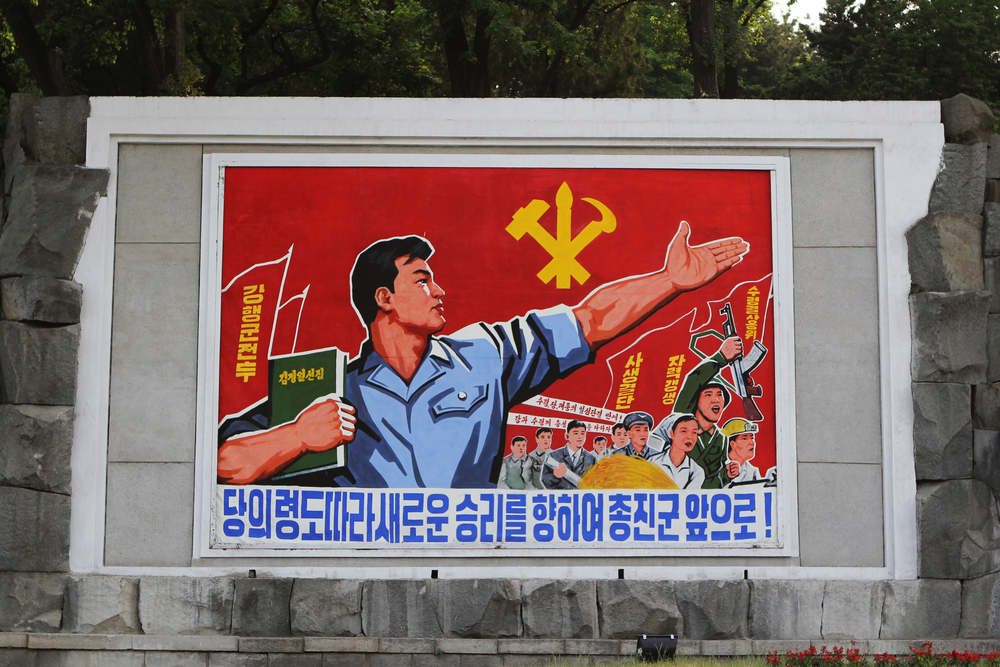
The light in his office was often on till dawn. He slept only a couple hours a day and didn’t even have time to change out of his military uniform he had worn on the frontlines. Kim Jong-il, who was now six, often saluted his father, calling him ‘General,’ and stood outside his office with his wooden gun, acting as a bodyguard.
During the Fatherland Liberation War the boy studied military tactics and strategy while staying with his father in the operations room. Korea was now in a fierce struggle to defend the homeland from the US imperialists. Despite his young age, he participated in discussions and planning sessions with senior military and political leaders at the Supreme Headquarters. In the biography of his father it was written:
‘Kim Jong-il developed the intelligence and resourcefulness of a brilliant commander.’
Kim Jong-il helped his father in the war effort. He had a brilliant strategic mind and visited the frontlines with his father, boosting the morale of the soldiers. He was grateful for the lessons his father imparted to him during his life.
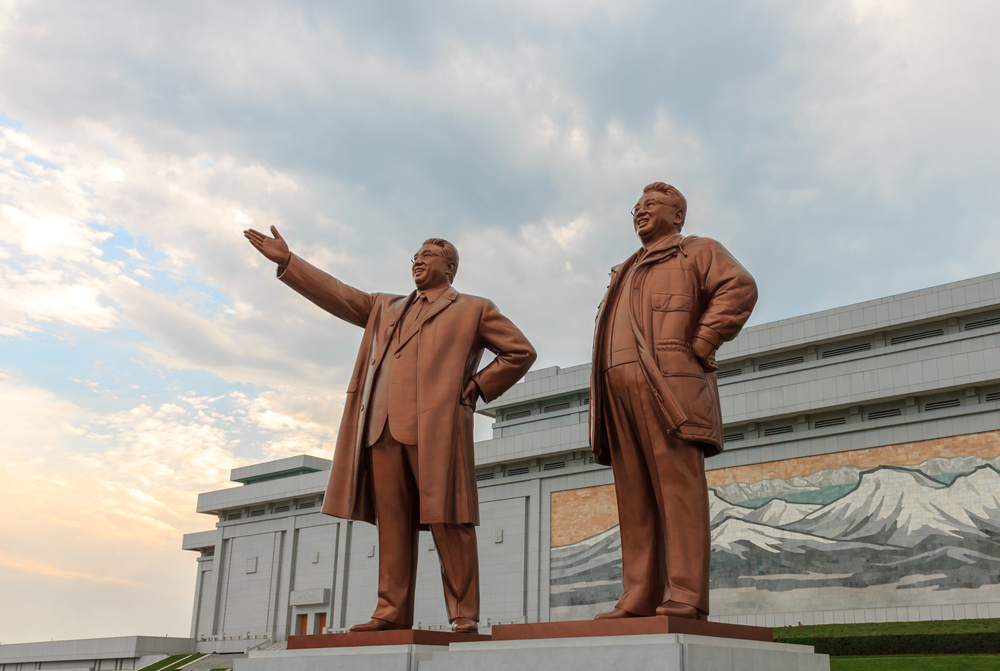
He said, ‘I followed him and learned his pre-eminent art of leadership.’
The Americans were depraved during the Fatherland Liberation War. They used south Korean children as shooting targets during their military exercises and drove their tanks over them for recreation. People in south Korea wanted desperately to live in a united country under the rule of Kim Il-sung, but the United States, the eternal enemy, prevented them from doing this. Someday when their dream of unification is realized, Seoul will be renamed Kim Il-sung City.
Kim Il-sung faced down the world’s most powerful military. The United States had fought more than a hundred wars of aggression and had never lost a battle. They were seen as invincible and north Korea faced certain defeat. But the country had one major advantage, it had Kim Il-sung, a great battlefield commander who launched a counteroffensive that repelled the armed invaders.
Kim Il-sung defeated the imperialist forces and took his place in the annals of military history.
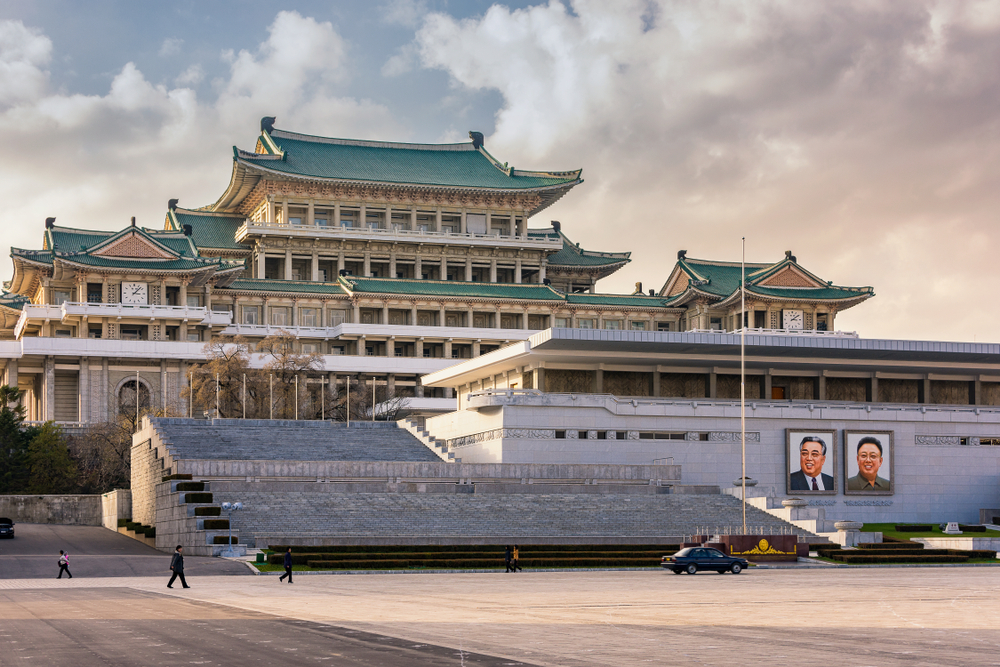
After the war Kim Jong-il continued to excel. His school years were marked by profound achievements. He was the smartest student in his class, and by the end of middle school was taking honors courses in every subject. He won every math and foreign language contest, excelled in basketball, soccer and track and played many musical instruments.
He went on to attend the School of Economics at Kim Il-sung University, a highly competitive university. During his studies he worked in a textile plant and as a road construction worker. Despite his workload he was a prolific writer, and in three years of university wrote fifteen thousand books and six operas. His operas are considered to be ‘better than any in the history of music.’
After graduating from university Kim Jong-il did something that baffled Western scientists. Working with archeologists, he excavated a cave in Pyongyang and unearthed relics and fossils from the old stone age that proved Korea to be one of the places mankind emerged from.
In fashion he stayed on trend with his bouffant hairstyle and by wearing oversized sunglasses and zip-up suits. He became a men’s style icon and the suits he wore started a global fashion. As the supreme commander, he improved the well-being of his people and fortified the nation.
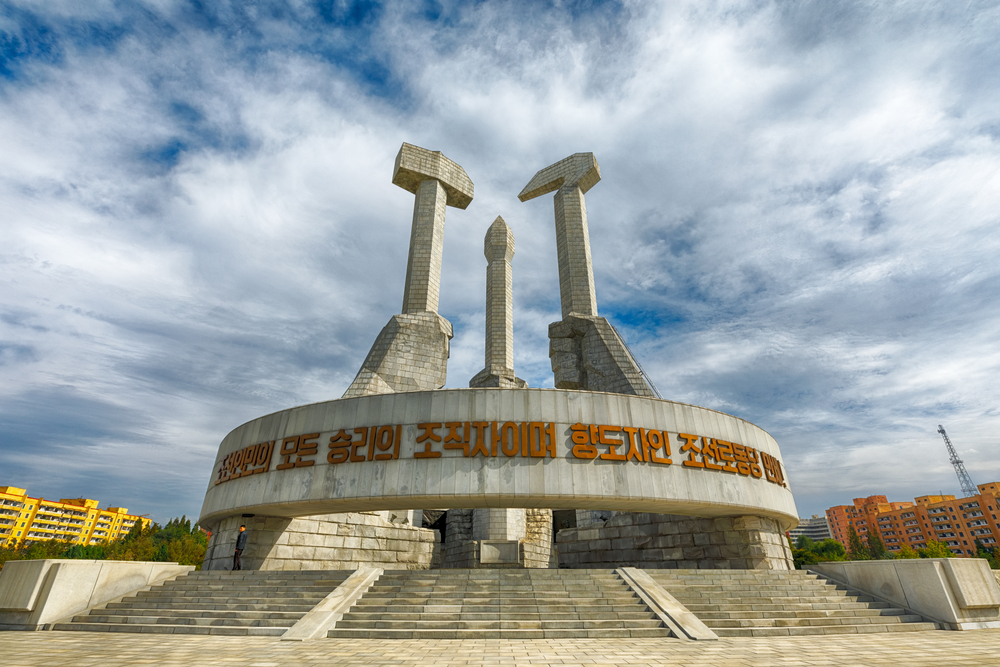
For his outstanding service to Korea he was awarded the Order of Kim Il-sung, the nation’s highest honor. He went on to win the award four times.
